
Civica Rx CEO Martin VanTrieste says Civica’s members are experiencing fewer shortages because of strategies used by the company.

Civica Rx CEO Martin VanTrieste says Civica’s members are experiencing fewer shortages because of strategies used by the company.

Civica Rx is using long-term contracts and payment on delivery as a way to keep manufacturers in the market, Civica Rx CEO and president Martin VanTrieste said in an interview with MHE.

A large proportion of patients with muscle-invasive bladder cancer responded to transurethral resection of bladder tumor and a drug cocktail that included gemcitabine, cisplatin and Opdivo (nivolumab).

In this week's episode Senior Editor Peter Wehrwein chats with Founder and Executive Chairwoman of Caravan Health Lynn Barr. The two discussed the relationship of payers and ACOs and the approach toward the direct contracting model.

Harvard researchers say, well, maybe.

The FDA approved Amgen’s Lumakras (sotorasib) last week, the first drug targeting KRAS-mutated cancer to get the agency’s OK. But the clinical and commercial future of the drug is uncertain.

Meta-analysis shows lower prevalence of four known driver mutations among Black lung cancer patients. More research into tumor biology of Black patients might yield targeted therapies that would benefit Black lung cancer patients, says the lead author, Philippos A. Costa, M.D.

Results suggest that providers won’t be penalized in patient experience scores if they say no to ordering unnecessary tests and procedures such as a PSA test for an older men or head imaging for a patient with uncomplicated headache.

The FDA gave its first approval today of a cancer drug that targets a KRAS mutation.

Managed Healthcare Executive's Senior Editor, Peter Wehrwein, and Associate Editor, Briana Contreras, spoke with MHE Editorial Advisory Board Member Lili Brillstein for a new episode of the "Meet the Board" series on "Tuning In to the C-Suite" podcast. Lili is CEO of BCollaborative, which works with stakeholders across the healthcare continuum to successfully make the move from fee for service to value-based healthcare. In this episode we get to learn a bit more about Lili's career and hear her thoughts on the advancements of episodes of care, as well as the challenges of transitioning from fee-for-service to value-based care during COVID-19.


CVS Health research shows $7,084 cost disadvantage to care that is not "concordant" with National Comprehensive Care Network guidelines.

A small fraction of those who were eligible under previous U.S. Preventive Services Task Force recommendations were screened with low-dose CT scans. New recommendations will make an additional 6.4 million Americans eligible, but a number of barriers to screening remain.

Panelists at 2021 ISPOR say price shouldn't be barrier. Suggestions include steep payment discounts if therapies don't meet outcome goals and regulators removing withdrawing approvals if the therapy doesn't work.

It shouldn’t be just about QALYs and cost. An ISPOR panel today discussed how best to incorporate the patient perspective into value assessment.

Too many study volunteers randomized to the 325-mg dose switched to the 81-mg one to settle the dosage issue But ADAPTABLE is still being celebrated as the kind of "pragmatic study'' that can be a less expensive, more realistic version of the RCT.


The supply side of the COVID-19 vaccine rollout has garnered most of the attention. But a recent survey on American beliefs about the vaccines suggests that the bigger problem may be on the demand side of the equation.
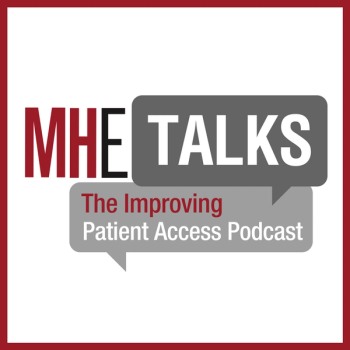
In this latest episode of the MHE Talks: Improving Patient Access series, Senior Editor Peter Wehrwein spoke with Dr. Christopher Crow, resident of Catalyst Health Network, a clinically integrated network of more than 1,000 primary care physicians throughout Texas. Peter and Dr. Crow discuss how his small-town roots and doctors there inspired his thinking about access issues; his experience with patient-centered medical homes and setting patient access as a priority; how Catalyst supports physicians in improving access; and the lack of Medicaid expansion in Texas and how that affects access there.

Copay accumulators are a common feature in health insurance plans sold on the ACA exchanges, according to a recent report from an AIDS advocacy group that wants the Biden administration to reverse a decision made by the Trump administration that allowed continued use of accumulators.
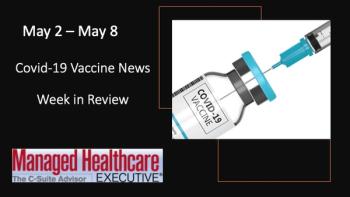

Researchers find that it is quite the opposite.

The prevalence of smoking among African American young adults “catches up” with other groups despite the low rate among Black youth. The ban on menthol may affect this and other aspects of smoking patterns among Black Americans.
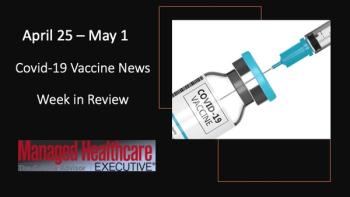

The administration gets a A-, B+ on most healthcare matters from Marc Samuels, CEO of ADVI and a member of the MHE editorial advisory board.

Vagner shares best work/life balance practices for parents during a new phase of COVID-19 as their children are back in school. The vice president of People at Maven, a virtual clinic for women's and family health, also shares some well-being tips that work for him as a parent.

Dan Ollendorf, Ph.D., M.P.H.,of the Center for the Evaluation of Value and Risk in Health at Tufts University Medical Center, is co-author of a new book, The Right Price, A Value-Based Prescription for Drug Costs.
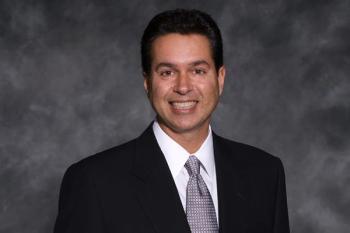
In this latest episode of Tuning In to the C-Suite’s Meet the Board podcast series, Managed Healthcare Executive's Senior Editor Peter Wehrwein and Associate Editor Briana Contreras spoke with MHE Editorial Advisory Board member, Doug Chaet. Chaet is president of Value Evolutions and chairman of the American Association of Integrated Healthcare Delivery Systems. In this conversation, the editors were able to learn more about the loyal board member and his background in healthcare toward his managed care career and were able to hear his thoughts on particular topics such as value-based care, ACOs and more.
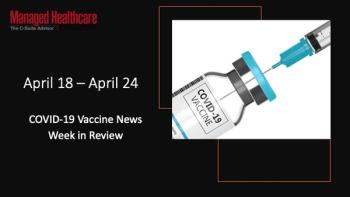
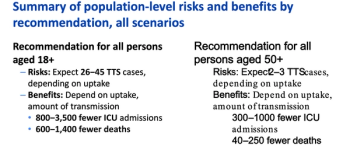
Projections of 600-1,400 fewer deaths were set against the risk of 26-45 cases of blood clots.